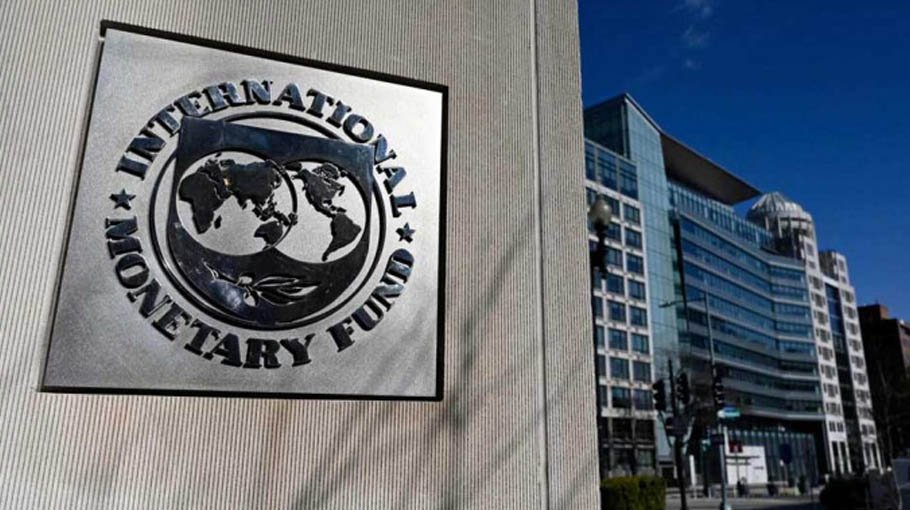$4.5b IMF loan okayed
First tranche to come in February

Finance Minister AHM Mustafa Kamal said that the International Monetary Fund (IMF) is giving Bangladesh a loan of $4.5 billion as per the expectations of Bangladesh.
He said this while addressing a press conference after holding a meeting with the visiting IMF Mission at his secretariat office on Wednesday.
The Washington-based multilateral lender said in a press release that the Bangladesh authorities and the IMF team already reached a staff-level agreement to support the authorities’ reform policies under a new 42-month extended credit facility (ECF)/ extended fund facility (EFF) arrangement of about US$ 3.2 billion (SDR 2.5 billion, equivalent to 231.4 percent of quota), and a concurrent resilience and sustainability facility(RSF) arrangement of about US$1.3 billion (SDR 1 billion, equivalent to 93.8 percent of quota).
It said the new ECF/EFF arrangement is aimed at restoring macroeconomic stability and preventing disruptive adjustments to protect the vulnerable, while promoting structural change to support strong inclusive and green growth.
Reflecting Bangladesh’s large climate financing needs, the concurrent RSF, which supplements the resources made available under the ECF/EFF, will expand the fiscal space to finance climate priorities identified in the authorities’ plans, including by catalyzing other financing, and reducing external pressures from import-intensive climate investment, it mentioned.
The staff-level agreement is subject to IMF management approval and Executive Board endorsement, which is expected in the coming weeks, it added.
“The IMF team held meetings with Finance Minister AHM Mustafa Kamal, Bangladesh Bank Governor Abdur Rouf Talukder, Finance Secretary Fatima Yasmin, and other senior government and Bangladesh Bank officials. It also met with representatives from the private sector, bilateral donors, think tanks, and development partners,” IMF said.
“We would like to thank the authorities for candid discussions and their warm hospitality and are looking forward to continuing our engagement in support of Bangladesh and its people.”
Meanwhile, the Finance Minister said, “As we wanted, IMF is giving us loans. We are going to get the IMF loan, inshAllah. The amount of loan is $4.5 billion. The loan will come in seven installments till 2026. The first installment will come in February next year.”
He said the first installment of the loan involving 352.35 million SDR or about $447.48 million will be available in February next year while the next six equal installments would be 519 million SDR or about $659.18 million each.
The IMF will provide 822.82 million SDR under Extended Credit Facility (ECF) which would be entirely interest free, he added.
Kamal said the IMF will provide another 1,645.64 million SDR to Bangladesh under Extended Fund Facility (EFF) with an interest rate of floating SDRi+1 percent while another 1.0 billion SDR under its Resilience and Sustainability Facility (RSF) with an interest rate of floating SDRi+0.75 percent.
The loan will be available in seven installments while the interest rate would be floating as the average interest rate would be 2.2 percent on the overall loan amount as per the SDR interest rate.
Meanwhile, IMF said, “Bangladesh’s robust economic recovery from the pandemic has been interrupted by Russia’s war in Ukraine, leading to a sharp widening of the current account deficit, rapid decline of foreign exchange reserves, rising inflation and slowing growth.”
“Even as Bangladesh tackles these immediate challenges, addressing long-standing structural issues remains critical, including threats to macroeconomic stability from climate change. To successfully graduate from Least Developed Country status and achieve middle-income status by 2031, it is important to build on past successes and address structural issues to accelerate growth, attract private investment, enhance productivity, and build climate resilience.”
“Against this backdrop, and following initial measures to maintain macroeconomic stability, the authorities have put together a program—supported by the IMF—that is expected to bolster its external position, reduce vulnerabilities, and prepare the ground for a robust and inclusive growth pick-up by scaling up much-needed social development and climate spending.
Key elements of the program include: Creating additional fiscal space, containing inflation and modernizing the monetary policy framework , strengthening the financial sector , boosting growth potential and building climate resilience.



